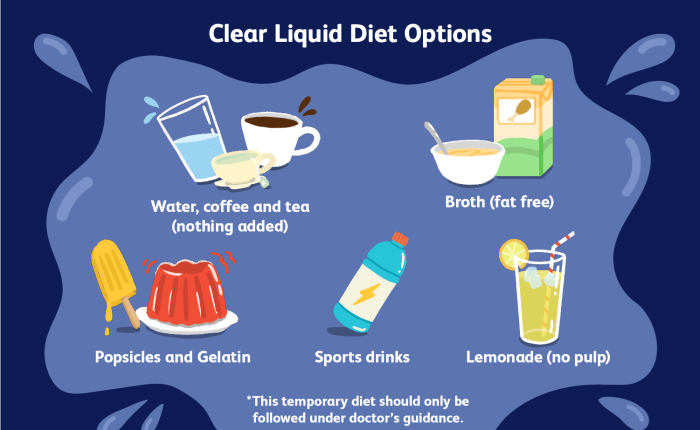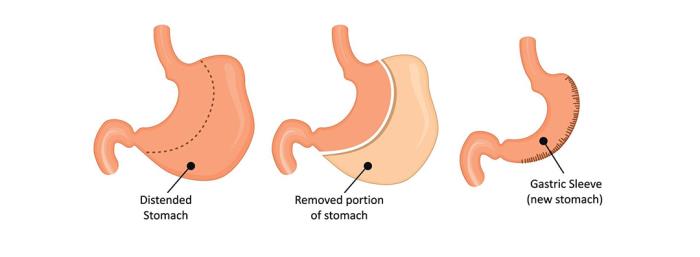After sleeve gastrectomy surgery, diet is a vital component in ensuring a successful recovery and long-term weight loss. The stomach is significantly reduced in size, which requires patients to adopt new eating habits that support healing and minimize the risk of complications such as leaks or nutrient deficiencies. A carefully planned diet helps patients adapt to their new stomach capacity, ensures proper nutrition, and promotes healthy weight loss. Following the recommended stages of the post-surgery diet also helps prevent discomfort, such as nausea or vomiting, and supports the body’s ability to heal effectively.
Medical disclaimer: This content is for general awareness and does not replace a doctor’s consultation. For diagnosis or treatment decisions, consult a qualified specialist.
Stages of the Post-Surgery Diet: An Overview
The post-surgery diet following sleeve gastrectomy is divided into four distinct stages, each designed to gradually reintroduce food while allowing the stomach to heal and adjust to its smaller size. The stages include the clear liquid phase, full liquid phase, pureed food stage, and soft food phase, before transitioning to a more regular, solid food diet. This phased approach minimizes the risk of irritation, ensures that the stomach has adequate time to heal, and helps patients progressively reintroduce essential nutrients, especially protein, to meet their body’s needs.
The Clear Liquid Phase: What to Consume and Avoid
Immediately after surgery, patients follow a clear liquid diet that includes water, broth, herbal teas, sugar-free gelatin, and electrolyte drinks. This stage, which typically lasts for the first few days, helps ensure hydration and provides minimal nourishment while allowing the stomach to begin the healing process. It is crucial to avoid drinks that are caffeinated, carbonated, or sugary, as these can cause discomfort, dehydration, or irritation. This phase is primarily focused on maintaining hydration and avoiding stress on the digestive system during the early healing process.

Transitioning to Full Liquids After Sleeve Gastrectomy
The next step in the diet progression is the full liquid phase, typically starting a few days after surgery, where patients can incorporate thicker liquids, such as protein shakes, low-fat milk, and strained soups. This phase helps patients continue their hydration while introducing small amounts of protein, essential for healing. The texture of liquids during this phase is more substantial than clear liquids but still gentle on the stomach, ensuring that it does not face too much strain. Care must be taken to avoid thick, creamy, or chunky liquids that could pose a risk of irritation or discomfort.
The Pureed Food Stage: Foods That Are Safe to Eat
In the pureed food stage, typically introduced around two to three weeks after surgery, patients begin to eat soft, mashed, or blended foods with a smooth consistency. Suitable options include mashed potatoes, pureed vegetables, low-fat yogurt, and blended lean meats such as chicken or turkey. The pureed consistency is important to minimize the risk of the stomach becoming blocked or irritated. This stage allows patients to slowly transition to more solid foods while maintaining easy-to-digest meals that meet nutritional needs. It is essential to avoid foods with seeds, skins, or fibrous textures during this phase to prevent discomfort.
Introducing Soft Foods into Your Post-Surgery Diet
The soft foods phase comes next and involves introducing foods with a slightly firmer texture, such as scrambled eggs, soft fish, cottage cheese, and finely chopped poultry. This phase allows patients to gradually reintroduce more solid food while still maintaining ease of digestion. The goal during this stage is to help the patient continue progressing toward a more typical diet without overwhelming the stomach. The food choices in this phase should still be low in fat and high in protein to promote healing and weight loss. Eating slowly and chewing food thoroughly is critical to avoid discomfort.
The Importance of Portion Control After Sleeve Gastrectomy
Portion control is one of the most important factors in long-term success after sleeve gastrectomy. Because the stomach is smaller, patients need to eat smaller portions and focus on nutrient-dense foods to ensure they meet their protein and calorie requirements without overeating. Consuming too much food at once can stretch the stomach, which could result in weight gain or complications like nausea, vomiting, or discomfort. Patients are encouraged to eat smaller meals, avoid grazing, and pay attention to hunger cues. Staying mindful of portion sizes helps to maintain weight loss and prevents the overconsumption of foods that could jeopardize the patient’s recovery and health.

Hydration Tips: How to Stay Hydrated Without Overeating
After sleeve gastrectomy, staying hydrated is crucial but challenging due to the stomach's reduced capacity. Sip water throughout the day instead of drinking large amounts at once, avoid drinking during meals, and opt for non-carbonated, sugar-free beverages to prevent bloating and overeating.
Protein Requirements for Sleeve Gastrectomy Patients
Protein is essential for healing and maintaining muscle mass post-surgery. Patients should aim for 60–80 grams of protein daily, focusing on lean sources like poultry, fish, eggs, low-fat dairy, and protein supplements if needed.
Foods to Avoid After Sleeve Gastrectomy Surgery
Patients should avoid foods that are high in sugar, fat, or carbonation, as these can lead to discomfort, dumping syndrome, or slowed weight loss. Hard-to-digest foods, such as tough meats, fibrous vegetables, and raw fruits with skins, should also be limited.
Managing Sugar and Fat Intake Post-Surgery
Consuming excessive sugar or fat post-surgery can cause dumping syndrome, nausea, or hinder weight loss. Choose low-fat dairy, lean proteins, and sugar-free options, and monitor food labels to maintain a balanced, low-calorie diet.
The Role of Vitamins and Supplements in Recovery
After surgery, reduced food intake can lead to vitamin and mineral deficiencies. Patients must take prescribed multivitamins, calcium, iron, and vitamin B12 supplements regularly to support overall health and recovery.
Meal Planning Tips for Long-Term Success
Effective meal planning involves prioritizing protein, incorporating small portions of vegetables, and balancing carbohydrates. Preparing meals in advance and tracking nutritional intake can help patients adhere to dietary guidelines and avoid unhealthy snacking.
How to Prevent Dumping Syndrome After Surgery
Dumping syndrome, caused by rapid stomach emptying, can be managed by avoiding sugary and fatty foods, eating smaller meals, and consuming foods slowly. Incorporating high-fiber foods gradually can also help regulate digestion.
Tracking Your Diet and Progress After Sleeve Gastrectomy
Keeping a food diary or using nutrition-tracking apps helps patients monitor calorie intake, protein consumption, and hydration levels, ensuring they stay on track with dietary goals and identify any patterns that may affect progress.
Tips for Eating Slowly and Chewing Thoroughly
Post-surgery, eating slowly and thoroughly chewing each bite reduces the risk of discomfort, vomiting, or choking. Setting down utensils between bites and focusing on mindfulness during meals can improve digestion and prevent overeating.
Recognizing Signs of Overeating or Poor Food Choices
Signs of overeating include stomach discomfort, bloating, and nausea, while poor food choices may lead to stalled weight loss or fatigue. Patients should regularly evaluate their meals and consult their healthcare team for adjustments.
Adapting to Long-Term Dietary Changes Post-Surgery
Adjusting to permanent dietary changes requires patience and consistency. Incorporate nutrient-dense, low-calorie foods, follow portion guidelines, and seek support from nutritionists or support groups for ongoing guidance.
The Role of Diet in Maintaining Weight Loss After Surgery
Diet plays a central role in sustaining weight loss by prioritizing high-protein, low-sugar, and low-fat foods. Consistent meal planning, mindful eating, and regular follow-ups ensure long-term success and overall health improvement.
The Role of Endoscopy in Sleeve Gastrectomy Surgery
Learn about the role of endoscopy in sleeve gastrectomy surgery. This article explains how endoscopic procedures are used for diagnostic purposes and in post-surgical evaluations, helping to monitor healing and detect potential complications early.
Consulting a Nutritionist for Personalized Post-Surgery Diet Plans
Working with a nutritionist ensures dietary recommendations are tailored to individual needs, medical conditions, and lifestyle. A personalized plan supports recovery, weight loss, and long-term maintenance post-surgery.
Best Sleeve Gastrectomy Surgery in India
The Best Sleeve Gastrectomy Surgery in India offers an effective weight-loss solution by reducing stomach size, helping patients achieve significant and sustainable weight loss with minimal risks.
Best Sleeve Gastrectomy Hospitals in India
The Best Sleeve Gastrectomy Hospitals in India provide state-of-the-art facilities and experienced medical teams, ensuring excellent care and support throughout the patient’s weight-loss journey.
Sleeve Gastrectomy Surgery Cost in India
The Sleeve Gastrectomy Surgery Cost in India is affordable and transparent, offering patients access to high-quality care at competitive prices, with comprehensive treatment packages.
Best Sleeve Gastrectomy Surgeons in India
The Best Sleeve Gastrectomy Surgeons in India are renowned for their expertise and precision, providing personalized care and advanced techniques to ensure successful outcomes.
FAQ Section
1. What are the different stages of the post-surgery diet for sleeve gastrectomy patients?
The diet progresses from clear liquids to full liquids, pureed foods, soft foods, and finally, regular foods over 4–8 weeks, focusing on hydration and nutrient-dense options.
2. How much protein should I consume daily after surgery?
Patients should aim for 60–80 grams of protein daily to support healing and maintain muscle mass, incorporating lean meats, eggs, low-fat dairy, and protein shakes.
3. Why is hydration important after sleeve gastrectomy, and how can I stay hydrated?
Hydration prevents dehydration and kidney issues. Patients should sip water throughout the day, avoid carbonated drinks, and consume at least 64 ounces of fluid daily.
4. What types of foods should I avoid after surgery?
Avoid sugary, fatty, carbonated, and hard-to-digest foods to prevent discomfort, dumping syndrome, and weight regain. Stick to soft, nutrient-rich foods as you progress.
5. How can I prevent dumping syndrome after sleeve gastrectomy?
Dumping syndrome can be prevented by eating smaller meals, avoiding sugary and fatty foods, chewing thoroughly, and introducing fiber-rich foods gradually to regulate digestion.
Explore the transformative effects of sleeve gastrectomy on diabetes management. This comprehensive guide delves into how this popular bariatric surgery can significantly improve glycemic control, reduce insulin dependency, and enhance overall metabolic health. Learn about the mechanisms behind these benefits, including hormonal changes and weight loss, and discover the latest research findings on long-term diabetes remission rates post-surgery. Whether you’re a healthcare professional or someone considering this procedure, our in-depth analysis provides valuable insights into the potential of sleeve gastrectomy to revolutionize diabetes care. Understanding the Impact of Sleeve Gastrectomy on Diabetes
Body Mass Index (BMI) is a critical factor in determining eligibility for sleeve gastrectomy surgery, a highly effective bariatric procedure aimed at significant weight loss. This surgery involves reducing the stomach size by approximately 80%, which limits food intake and induces hormonal changes that decrease appetite and increase fullness. Typically recommended for individuals with a BMI over 40, or those with a BMI over 35 accompanied by serious weight-related health conditions, sleeve gastrectomy offers a sustainable solution for long-term weight management. Understanding the role of BMI in this context helps patients and healthcare providers make informed decisions about the suitability and potential benefits of the procedure. Understanding BMI and Its Role in Sleeve Gastrectomy Surgery
Explore the latest advancements in minimally invasive techniques for sleeve gastrectomy on our blog. Discover how innovative approaches, such as single incision laparoscopic surgery and robotic-assisted procedures, are revolutionizing bariatric surgery. Learn about the benefits of these cutting-edge methods, including reduced postoperative pain, faster recovery times, and improved cosmetic outcomes. Stay informed about the future of weight loss surgery and how these advancements are enhancing patient care and outcomes. Dive into our comprehensive analysis and stay ahead in the field of bariatric surgery. Advances in Minimally Invasive Techniques for Sleeve Gastrectomy